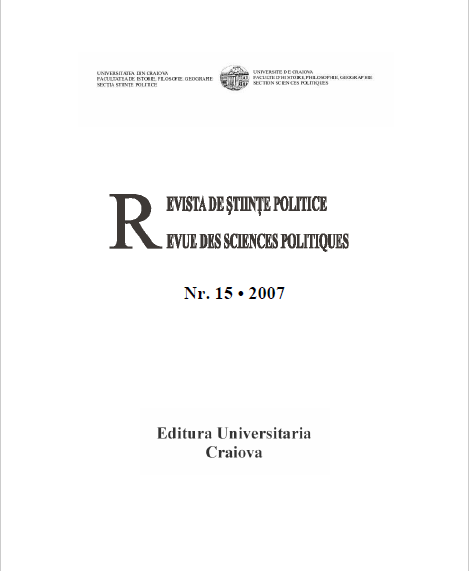Controverse legate de înfiintarea unei autorităti sinodale canonice în România
Controversy over the establishment of a synodal canonical authority in Romania
Author(s): Anca Parmena OlimidSubject(s): Constitutional Law, Political history, 19th Century, Eastern Orthodoxy
Published by: Editura Universitaria Craiova
Keywords: Constitution from 1866; Romanian Orthodox Church;
Summary/Abstract: The proclamation of the Constitution from 1866 represented an essential step on the road of completion of modern organization od the Romanian society, because not only a historical period of Romanians was elaborated, but, by firmly stating the national sovereignty and aspiration for independency, by the tone on which it was written, by some stipulations and especially by ignoring the Ottoman suzerainty and the warranty of great powers, it was brought out as a fundamental statute of a free country. Thus, in the year 1867 a new draft oragnic law was made for the Romanian Orthodox Church for which in the year 1869 the consent of the Hegumenic Patriarch Gregory the 6th (1867-1871). The lack of synod canonical authority in the Romanian Orthodox Church that was supposed to regulate the dogmatic and disciplinary issues determined the Romanian Government, through the report no. 12693 from 1872, drafted by Christian Tell, the Ministry of Cults and Public Education, to propose to the Legislative Bodies a law for the election of metropolitan bishops and eparchy bishops and the establishment of the Holy Synode of the Romanian Orthodox Church. This project was voted by the Chamber of Deputies (4th of December 1872) and by the Senate (11th of December 1872) and ammended on the 14/16th of December 1872, under the name of Organic law for the election of metropolitan bishops and eparchy bishops and the establishment of the Holy Synode of the Romanian Autocephalic Orthodox Church.
Journal: Revista de Științe Politice. Revue des Sciences Politiques
- Issue Year: 2007
- Issue No: 15
- Page Range: 95-99
- Page Count: 5
- Language: Romanian

